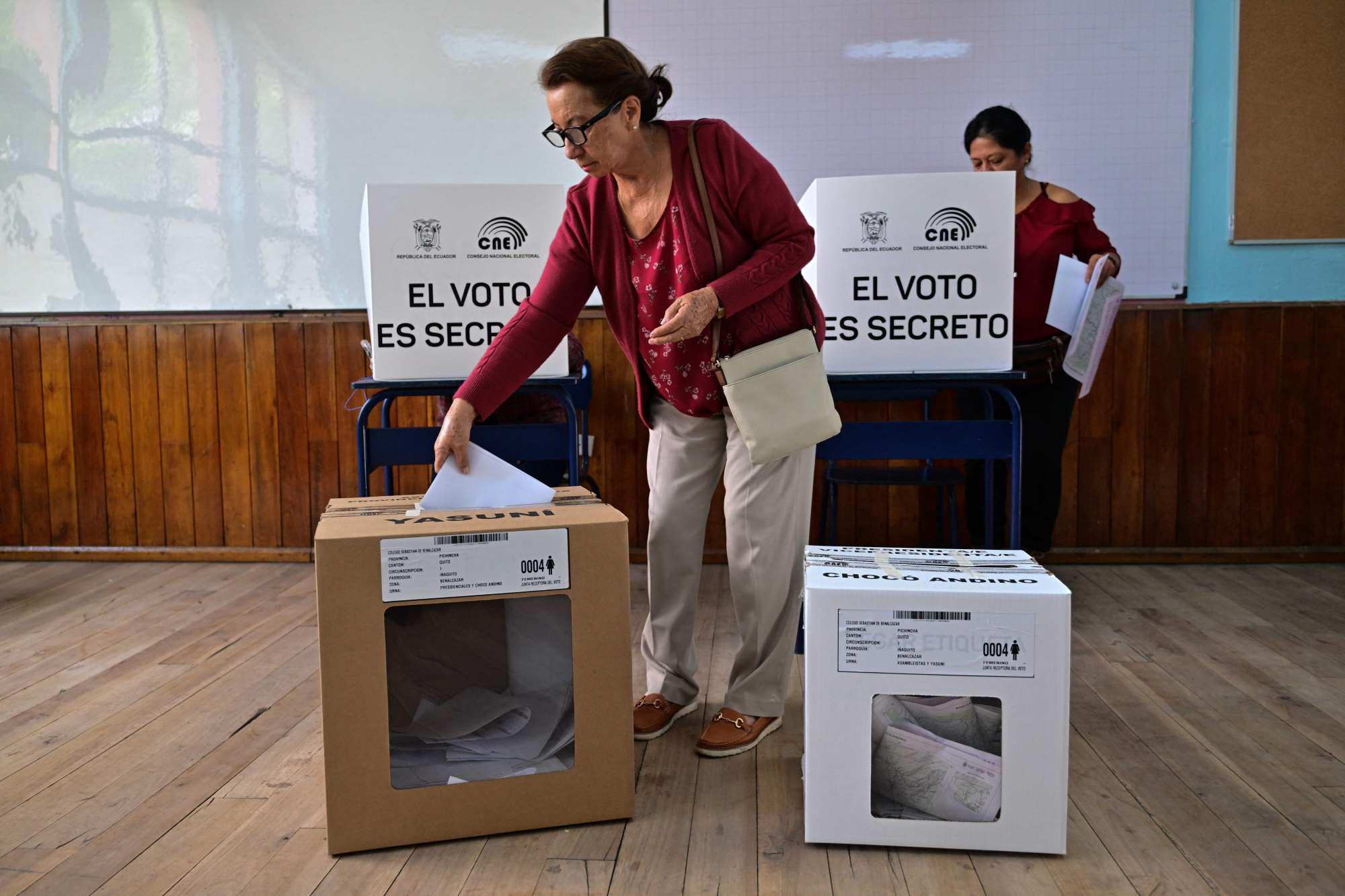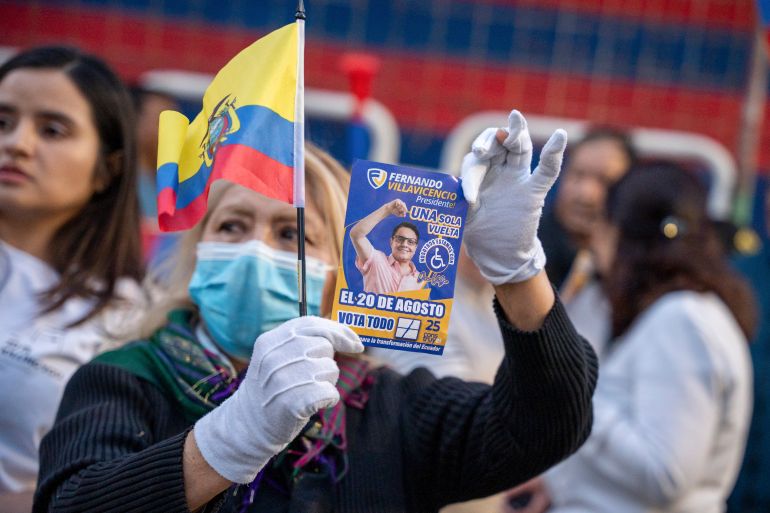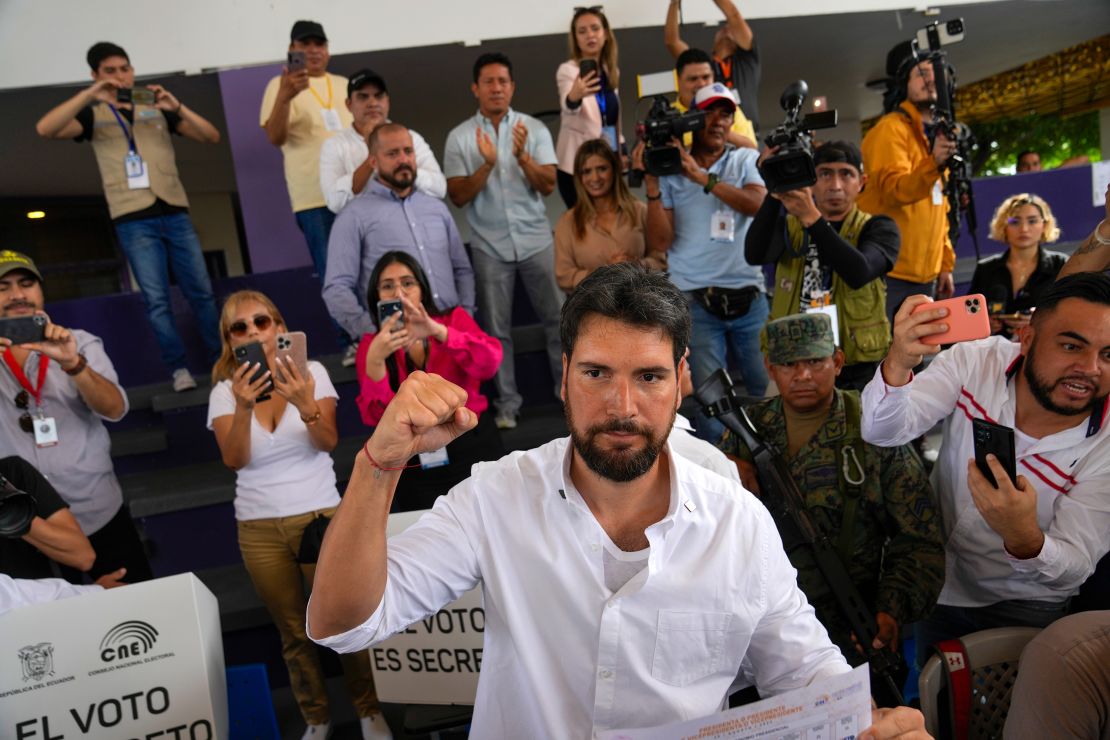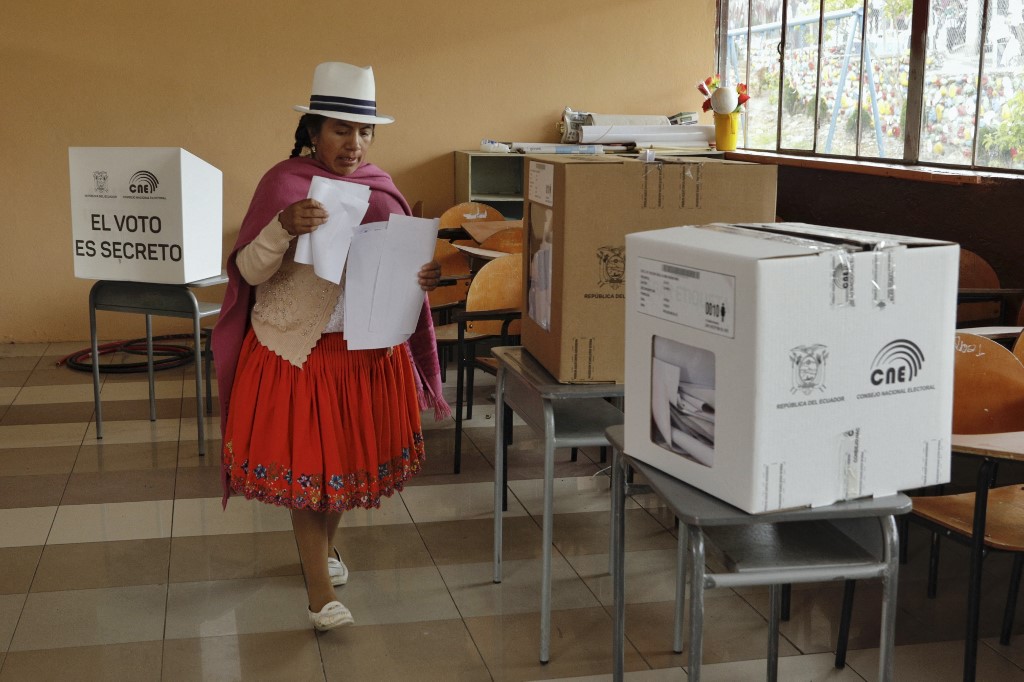Table of Contents
- Ecuador election: As run-off looms, voters crave genuine change ...
- Voters head to polls in Ecuador for 2nd round of presidential election ...
- Ecuador votes to elect new president | Elections News | Al Jazeera
- Daniel Noboa, son of Ecuador's richest person, wins election in ...
- 'We are afraid': Violence-hit Ecuador votes under heavy security ...
- Ecuador votes in tense presidential election marred by candidate’s ...
- Ecuador: start of counting indicates second round in presidential ...
- Ecuador To Vote In Election Dominated By 'Horror' Of Violence
- Assassinations cast a grim shadow as Ecuador selects a new president | CNN
- Slain Ecuadorian presidential candidate's party picks his replacement ...

In a closely watched runoff election, Ecuador has reelected its President Daniel Noboa, securing a second term amidst a backdrop of economic uncertainty and political polarization.


The Road to the Runoff

Presidential elections in Ecuador typically draw significant attention globally due to the country's unique geography and rich biodiversity. The 2024 election was no exception, with Daniel Noboa, a seasoned politician and economist, facing off against his main challenger, Andres Aristizabal.

The initial round of voting saw both candidates garner significant support, with Noboa securing around 45% of the vote share and Aristizabal trailing slightly behind at approximately 42%. This prompted an unprecedented runoff election to determine the next President of Ecuador.


Key Takeaways from the Runoff
In the runoff election, Noboa emerged victorious, garnering a slim majority of around 52% of the vote share. The narrow margin highlights the deep divisions within Ecuadorian society and underscores the challenges ahead for the newly reelected President.
Throughout his campaign, Noboa focused on economic growth, job creation, and social welfare programs to appeal to a broad range of voters. His experience as a former Minister of Economy and Finance likely contributed to his popularity among those seeking stability and consistency in government policies.

Economic Challenges Ahead
As President Noboa begins his second term, he will face significant economic challenges. Ecuador's economy has struggled with inflation, currency fluctuations, and a reliance on foreign aid. The country's energy sector is also heavily dependent on oil exports, making it vulnerable to global market fluctuations.
To address these challenges, Noboa may need to implement fiscal reforms, invest in renewable energy sources, and strengthen ties with international partners. His administration will also need to prioritize education and healthcare initiatives to ensure the well-being of Ecuador's citizens.
International Implications
The outcome of Ecuador's presidential election has significant implications for regional stability and global relations. As a member of the Organization of American States (OAS) and the Union of South American Nations (UNASUR), Ecuador plays an important role in promoting cooperation and diplomacy within the region.
President Noboa's re-election may lead to continued collaboration with neighboring countries on issues such as trade, security, and environmental protection. Additionally, his administration will need to navigate complex diplomatic relationships with major powers like the United States and China, which have significant economic interests in Ecuador.

A New Era of Leadership
The election of President Noboa marks a new era of leadership for Ecuador. As he begins his second term, he has an opportunity to build on his experience and promote meaningful reforms that benefit the people of Ecuador.
While the challenges ahead are significant, President Noboa's re-election provides a sense of stability and continuity for the country. His administration will need to work closely with international partners, civil society organizations, and domestic stakeholders to address the pressing issues facing Ecuador today.